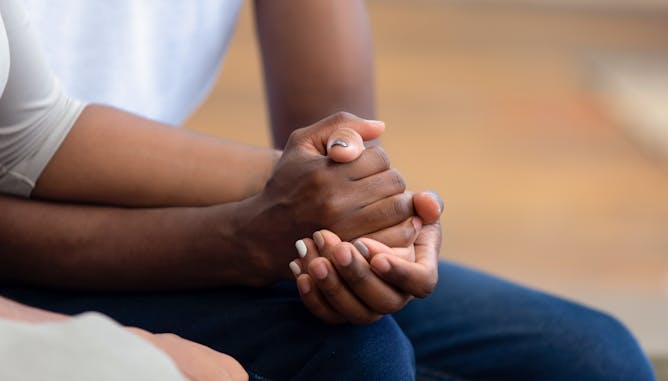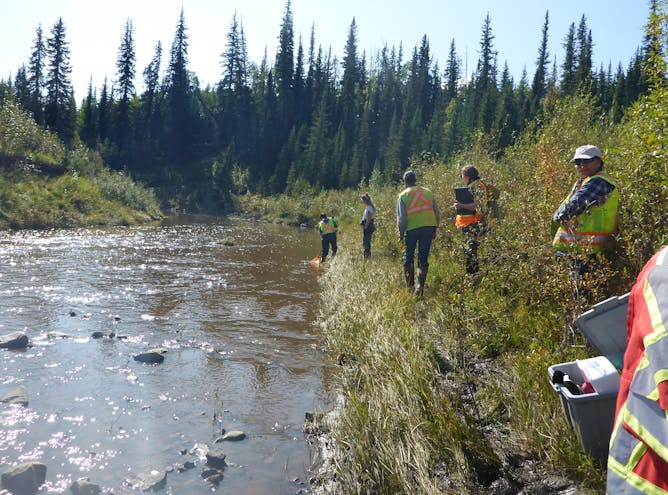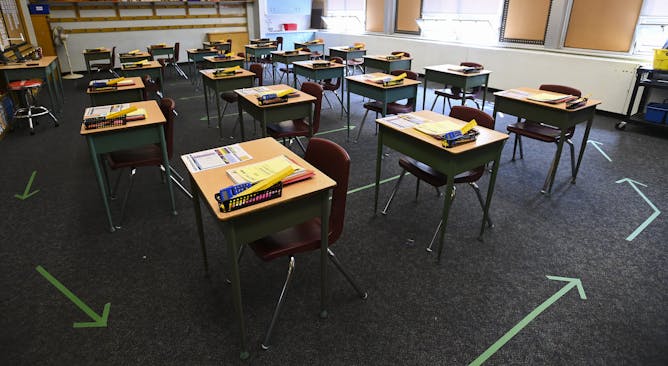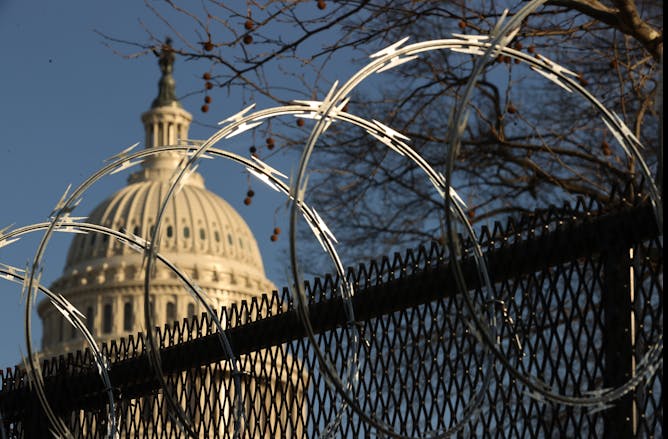|
|
|
|
Counting the deaths due to the coronavirus pandemic has been a daily, public action. As the numbers keep increasing, it’s important to note that due to ongoing public health restrictions on movements and gatherings, we haven’t been able to mourn and grieve these losses in the ways we are accustomed to.
Grief is our response to loss, and it’s not restricted to the loss of lives. We’re grieving the severing of our social connections and networks, and what we considered to be the normal, regular and mundane aspects of our everyday lives. We’re also trying to cope with the loss of our ambitions, dreams and hopes and adjusting to reconsidering the futures we expected to have.
Today in The Conversation Canada, Susan Cadell from the University of Waterloo highlights the need for a national grieving strategy. Pointing to the work of the Canadian Grief Alliance, she writes that “public education is needed to better equip all of us at dealing with grief,” especially in the wake of a pandemic that keeps racking up the losses.
Also today:
Regards,
|
Nehal El-Hadi
Science + Technology Editor
|

|
|

Grief is inevitable, and its effects on individuals, communities and populations need to be recognized and addressed.
(Shutterstock)
Susan Cadell, University of Waterloo
The Canadian government needs to develop a national grief strategy to address the needs of its citizens during and after the pandemic.
|

Community members from Blueberry River First Nations collect STREAM samples in Fort St. John, B.C.
(Raegan Mallinson/Living Lakes Canada)
Chloe V. Robinson, University of Guelph; Mehrdad Hajibabaei, University of Guelph
In Canada, watersheds are vast and often inaccessible, making it difficult to monitor the health of these ecosystems. A new tool helps communities collect data to assess the state of Canada's rivers.
|

A circus of political theatre shouldn’t determine what children learn at school.
THE CANADIAN PRESS/Nathan Denette
Kent den Heyer, University of Alberta
Canadians for the most part have been well served with dispassionate professional judgements about matters of public interest, except when it comes to what kids learn at school.
|

Public banks around the world are working towards the public good during COVID-19. The Canada Infrastructure Bank, however, seems focused on privatizing critical public services instead of ensuring vital infrastructure across the country is built or maintained, like this project to repair the
bridge spanning the Halifax harbour in 2017.
THE CANADIAN PRESS/Andrew Vaughan
David McDonald, Queen's University, Ontario; Thomas Marois, UCL
Canada doesn't have many public banks. The best known, the Canada Infrastructure Bank, seems intent on privatizing critical public services instead of working towards the public good.
|
La Conversation Canada
|

Les directions d'école ont dû revoir leurs pratiques pour faire face à la crise sanitaire, et exercer leur leadership différemment.
Shutterstock
Olivier Lemieux, Université du Québec à Rimouski (UQAR); Anne-Michèle Delobbe, Université du Québec à Rimouski (UQAR); Jean Bernatchez, Université du Québec à Rimouski (UQAR)
Sous le radar, les directions d’école ont joué un rôle important dans la gestion de la crise sanitaire, redéfinissant certains de leurs rôles.
|

Le procès de mise en accusation montre que la démocratie américaine est en bien mauvais état.
Chip Somodevilla/Getty Images
John E. Finn, Wesleyan University
L’acquittement de l’ancien président Trump, mis en accusation pour avoir incité à l’attaque du Capitole est un symptôme du déclin du système constitutionnel américain qui est rongé de l’intérieur.
|
Education
|
-
Donna Ford, The Ohio State University
Anti-Black bias and lack of teacher referrals are keeping Black students out of gifted school programs, a scholar suggests.
|
|
COVID-19
|
-
Ed Rybicki, University of Cape Town; Anna-Lise Williamson, University of Cape Town; Don Cowan, University of Pretoria; Stephanie G Burton, University of Pretoria
Occasionally, a mutation will give the virus a better chance of surviving and reproducing itself, and will result in a new population (known as a new lineage)
|
|
Science + Technology
|
-
Francesco Giorgio-Serchi, University of Edinburgh
The new underwater robots successfully mimic the sea's most efficient swimmers.
|
|
| |
| |
| |
| |

|
| |
| |
| |
| |
| |
| |
| |
| |
|
|
|
|
|
|
|